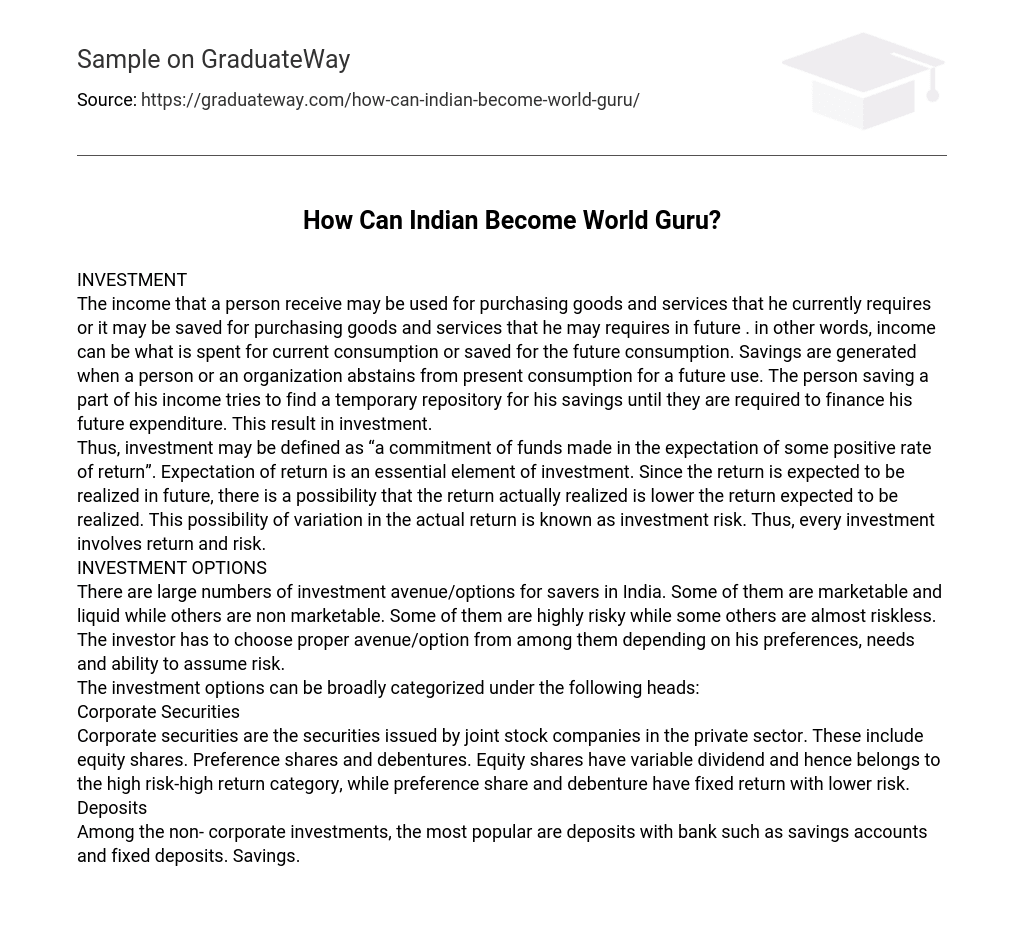INVESTMENT
The income that a person receive may be used for purchasing goods and services that he currently requires or it may be saved for purchasing goods and services that he may requires in future .
in other words, income can be what is spent for current consumption or saved for the future consumption. Savings are generated when a person or an organization abstains from present consumption for a future use. The person saving a part of his income tries to find a temporary repository for his savings until they are required to finance his future expenditure. This result in investment.
Thus, investment may be defined as “a commitment of funds made in the expectation of some positive rate of return”. Expectation of return is an essential element of investment. Since the return is expected to be realized in future, there is a possibility that the return actually realized is lower the return expected to be realized.
This possibility of variation in the actual return is known as investment risk. Thus, every investment involves return and risk.
INVESTMENT OPTIONS
There are large numbers of investment avenue/options for savers in India. Some of them are marketable and liquid while others are non marketable. Some of them are highly risky while some others are almost riskless. The investor has to choose proper avenue/option from among them depending on his preferences, needs and ability to assume risk.
The investment options can be broadly categorized under the following heads:
Corporate Securities
Corporate securities are the securities issued by joint stock companies in the private sector. These include equity shares.
Preference shares and debentures. Equity shares have variable dividend and hence belongs to the high risk-high return category, while preference share and debenture have fixed return with lower risk.
Deposits
Among the non- corporate investments, the most popular are deposits with bank such as savings accounts and fixed deposits. Savings.





